Introduction:
Poker is a game not only of skill and strategy but also of intricate social dynamics. Navigating player interactions and understanding the impact of social dynamics at the poker table can significantly influence your success in the game. Whether it’s building rapport, handling aggressive opponents, or dealing with manipulative mind games, mastering the art of player interactions can give you a competitive edge. In this article, we will explore various tips and strategies to help you navigate social dynamics at the poker table, allowing you to make better decisions, establish trust, maintain emotional control, and leverage these dynamics to your advantage. By understanding and capitalizing on the social aspects of the game, you can enhance your overall poker performance and increase your chances of coming out on top.
1. The Impact of Social Dynamics on Poker Play
1.1 The Role of Player Interactions in Poker
When it comes to poker, it’s not just the cards you have in your hand that determine your success. The interactions you have with other players at the table can greatly influence your gameplay. Poker is a social game, and understanding how player interactions come into play can give you an edge.
1.2 Understanding the Psychological Aspect of Poker
Poker is as much a psychological battle as it is a game of skill. People’s personalities, emotions, and mindset all come into play during a poker game. Understanding the psychological aspect of poker can help you anticipate the moves and reactions of your opponents, giving you an advantage in making informed decisions.
1.3 How Social Dynamics Influence Decision Making
Social dynamics at the poker table can directly impact how players make decisions. When players are engaged in conversations or have established relationships, they may be more inclined to make certain moves, such as bluffing or folding. On the other hand, conflicts or tensions between players can lead to more cautious and conservative gameplay. Being aware of these dynamics allows you to adapt your strategy accordingly.
2. Understanding Different Player Personalities
2.1 Identifying Various Player Types
Just like in any social setting, poker tables are filled with different personalities. There are the tight players who play it safe, the loose players who take risks, and everything in between. Identifying and categorizing different player types can help you better understand their strategies and adjust your own accordingly.
2.2 Analyzing Player Behaviors and Patterns
Pay close attention to the behaviors and patterns exhibited by your opponents. Do they always bet big when they have a strong hand? Do they tend to fold easily when faced with aggression? These patterns can give you valuable insights into their playing style and help you make more informed decisions in future hands.
2.3 Adjusting Strategies for Different Personalities
Once you have identified the different player types at the table, it’s time to adapt your strategy. Tight players may be more predictable, while loose players can be harder to read. Tailoring your approach based on the personalities you encounter can help you exploit their weaknesses and maximize your chances of success.
3. Building Rapport and Establishing Trust
3.1 The Importance of Building Connections with Players
Building good relationships with your fellow players can have a positive impact on your poker experience. When players feel a connection or camaraderie with you, they may be more inclined to engage in friendly banter or share information. This can help create a more enjoyable atmosphere and potentially influence their decision-making process.
3.2 Techniques for Establishing Trust at the Table
Establishing trust at the poker table can be tricky, but it’s not impossible. Avoid coming across as overly aggressive or deceptive, as this can hinder trust-building efforts. Instead, try to be approachable, friendly, and consistent in your actions. Developing a reputation for fairness and integrity can go a long way in gaining the trust of your fellow players.
3.3 Building a Positive Table Image
Your table image, or how players perceive you, can impact how they interact with you. If you consistently play strong hands and make solid decisions, players may view you as a formidable opponent. Conversely, if you frequently bluff or make questionable moves, they may label you as unpredictable. Maintaining a positive table image can influence how others approach you, potentially giving you an advantage.
4. Strategies for Handling Aggressive Players
4.1 Identifying Aggressive Player Types
Aggressive players can be intimidating, but they also present opportunities to exploit their tendencies. Look for players who frequently bet or raise aggressively, even with weaker hands. Identifying aggressive player types allows you to be better prepared for their next move.
4.2 Responding to Aggression with a Solid Game Plan
When faced with aggression, it’s crucial to have a solid game plan in place. Avoid getting caught up in the heat of the moment and making impulsive decisions. Instead, analyze the situation, assess your hand strength, and consider the potential motives of the aggressive player. Responding strategically can help you navigate their aggression and come out on top.
4.3 Countering Aggression with Controlled Aggression
Sometimes, the best defense against aggressive players is to fight fire with fire. Controlled aggression can be an effective strategy to counter their relentless bets and raises. By strategically choosing when to play back at them, you can disrupt their rhythm, make them doubt their moves, and potentially force them to fold when they least expect it.
Remember, mastering social dynamics at the poker table takes time and practice. By understanding player interactions, identifying unique personalities, building rapport, and strategizing against aggression, you can enhance your poker skills and increase your chances of success. So, grab your chips, keep a keen eye on the players, and let the social dynamics shape your poker journey with some added flair!
5. Dealing with Manipulative and Mind Games
5.1 Recognizing Manipulative Tactics
Playing poker is like stepping into a ring with a bunch of mental gymnasts. Some players will try to get into your head and throw you off your game. It’s important to recognize the signs of manipulation so you can keep your wits about you. Watch out for players who constantly change their betting patterns, use excessive aggression, or make personal remarks to throw you off guard. These are the people who have watched too many spy movies and think they’re playing mind games. Don’t fall for it!
5.2 Maintaining Mental Resilience against Mind Games
The key to maintaining mental resilience is to remember that poker is a game of skill and strategy, not a battle of egos. Don’t let mind games distract you from making rational decisions. Stay focused on the cards and your own game plan. Remind yourself that your opponent’s antics are just smoke and mirrors, and the real game is in the cards.
5.3 Strategies to Counteract Manipulation and Mind Games
If you find yourself facing a manipulative opponent, it’s important to stay calm and stick to your game plan. Don’t be baited into reacting emotionally or deviating from your strategy. Instead, use their tactics against them. Stay consistent in your betting patterns to make it harder for them to read you. And if they start making personal remarks, respond with a witty one-liner that shows you’re not taking their mind games seriously. Remember, laughter is the best defense!
6. Maintaining Emotional Control and Mental Focus
6.1 Understanding the Impact of Emotions on Poker Performance
In the high-stakes world of poker, emotions can be your best friend or your worst enemy. A sudden surge of excitement after a big win can lead to reckless bets, while frustration from a bad hand can cloud your judgment. Recognizing the impact of emotions on your poker performance is crucial for success.
6.2 Techniques for Managing Emotions at the Table
To keep your emotions in check, try taking a deep breath and counting to ten before making any impulsive decisions. Remind yourself that poker is a long game and that short-term setbacks are just part of the journey. It’s also helpful to have a pre-game routine that helps you relax and focus, whether it’s listening to your favorite tunes or doing a quick meditation. And hey, if all else fails, a lucky charm or two never hurt anyone!
6.3 Enhancing Mental Focus for Optimal Decision Making
Mental focus is the secret weapon of successful poker players. To enhance your focus, eliminate distractions at the table. Put away your phone, turn off the TV, and resist the urge to engage in chit-chat with your neighbor. Stay in the zone by focusing on the game at hand and analyzing your opponents’ behavior for any valuable insights. And hey, if you need a little extra help, a caffeinated beverage or a mint can work wonders for keeping your mind sharp!
7. Effective Communication and Non-Verbal Cues
7.1 The Importance of Clear Communication at the Table
Communication at the poker table isn’t just about the words you say; it’s about how you say them. Clear and concise communication is crucial for conveying your intentions and understanding your opponents. Avoid unnecessary chatter and keep your poker lingo straightforward. You don’t want to accidentally give away any valuable information, like the fact that you’re secretly holding a royal flush behind that charming smile.
7.2 Interpreting Non-Verbal Cues from Other Players
While poker is a game of skill, it’s also a game of observation. Pay close attention to the non-verbal cues of your opponents. Watch for any subtle twitches, eye movements, or changes in body language that could indicate the strength or weakness of their hands. Just don’t get too carried away with your detective skills. We’re playing poker, not trying to solve a murder mystery!
7.3 Utilizing Non-Verbal Cues to Influence Opponents
If your opponents are busy analyzing your every move, why not use it to your advantage? A well-timed smirk or a subtle raise of the eyebrow can plant seeds of doubt in their minds. Use your non-verbal cues strategically to bluff, mislead, and manipulate your opponents. Just remember to keep your cues natural and consistent with your overall poker persona. You don’t want to end up looking like an extra from a bad poker movie!
8. Leveraging Social Dynamics to Gain an Edge
Poker is a social game, and understanding the dynamics at the table can give you a significant edge. Pay attention to the interactions between players, especially during hands you’re not involved in. Look for patterns and tensions that may reveal valuable insights about your opponents’ playing styles and strategies. And remember, while it’s important to observe and adapt to the social dynamics, don’t forget to have a good time and enjoy the banter. After all, life is too short to take poker too seriously!In conclusion, mastering the intricacies of social dynamics at the poker table is a valuable skill that can greatly enhance your gameplay. By understanding different player personalities, building rapport, and effectively navigating aggressive and manipulative opponents, you can elevate your poker strategy to new heights. Additionally, maintaining emotional control, utilizing effective communication, and leveraging social dynamics to gain an edge will contribute to your long-term success in the game. Remember, poker is not just about the cards; it’s about the interactions with other players. So, practice these tips and strategies, and watch as your game evolves, bringing you closer to becoming a formidable force at the poker table.
FAQ:
1. How important are social dynamics in poker?
Social dynamics play a crucial role in poker as they affect decision making, table image, and the overall atmosphere of the game. Understanding and effectively navigating player interactions can give you a competitive edge and increase your chances of success.
2. How can I handle aggressive players at the poker table?
Dealing with aggressive players requires a solid game plan. It is important to identify different types of aggressive players and respond accordingly. Countering aggression with controlled aggression, maintaining composure, and adjusting your strategy can help you effectively handle aggressive opponents.
3. How do I establish trust and build rapport with other players?
Building trust and establishing rapport can create a more favorable playing environment. Techniques such as active listening, showing respect, and finding common ground can help you build connections with other players, leading to a more cooperative and advantageous atmosphere.
4. How can I maintain emotional control during intense poker sessions?
Maintaining emotional control is vital for making rational decisions. Techniques like deep breathing, managing tilt, and taking breaks can help you stay composed and focused. Additionally, developing a strong mental game through practice and self-awareness will contribute to maintaining emotional control in high-pressure situations.

AdHang.com is the No.1 agency for digital marketing in Nigeria and the first Internet public enlightenment agency in Africa. AdHang has everything needed to achieve your digital marketing objectives and goals. From strategic digital marketing, a tactical approach to employing advanced digital marketing tools and technologies, using seasoned marketers with decades of marketing communications experience.

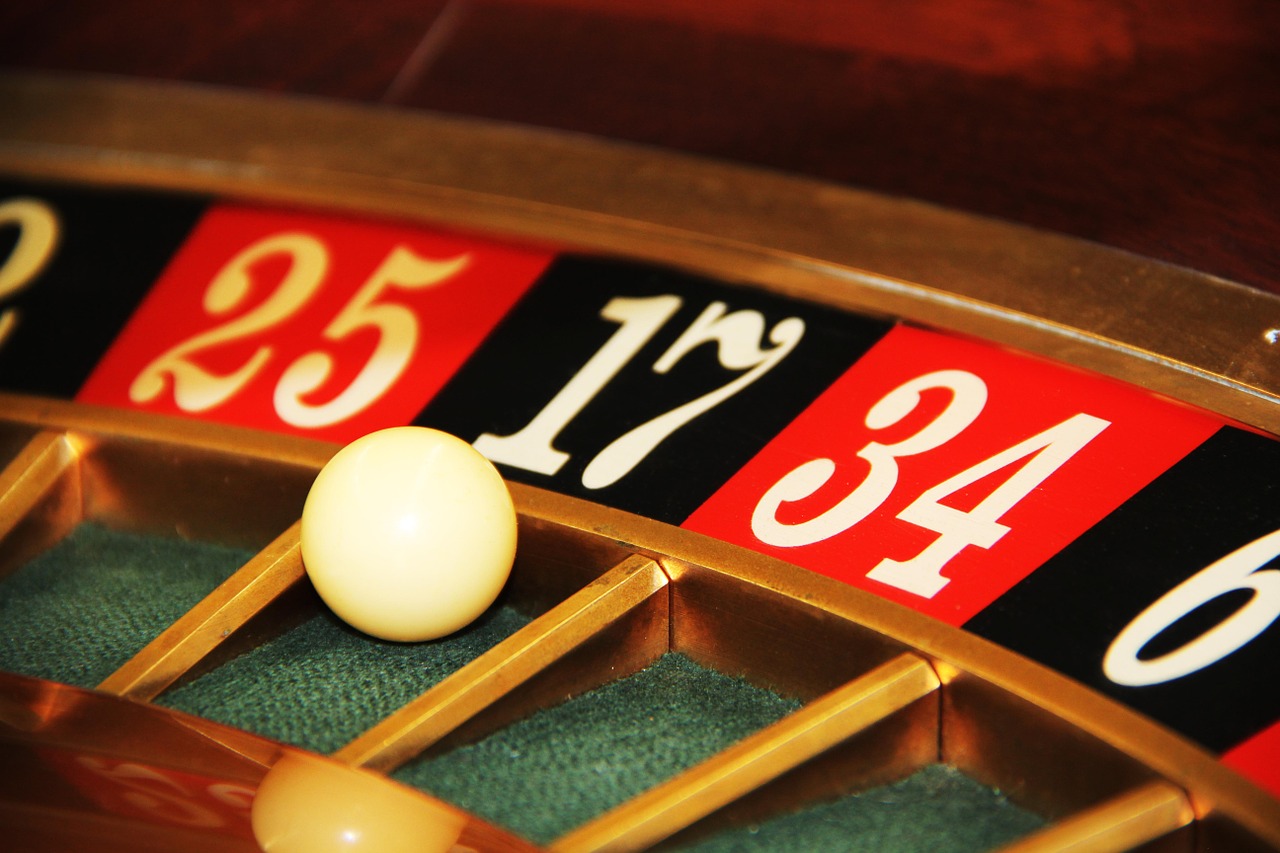

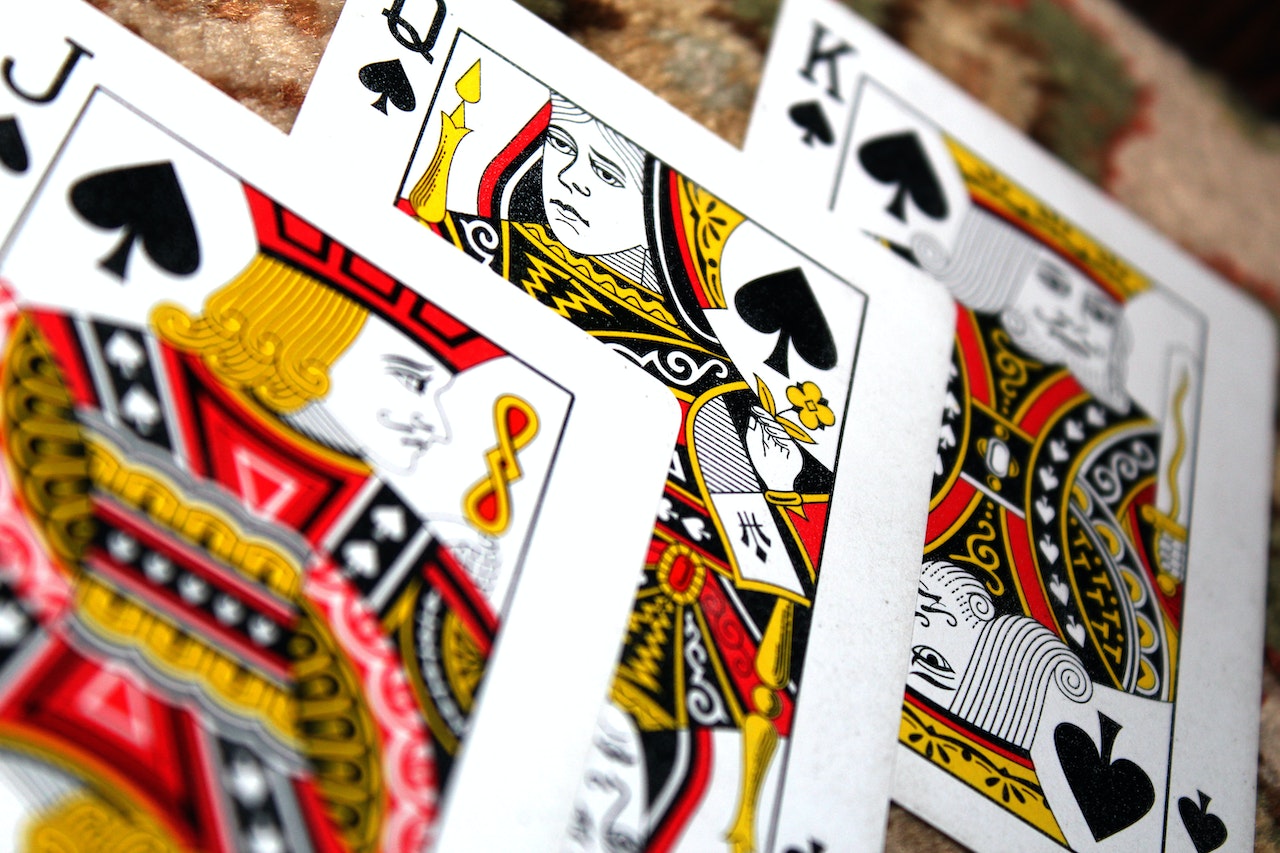
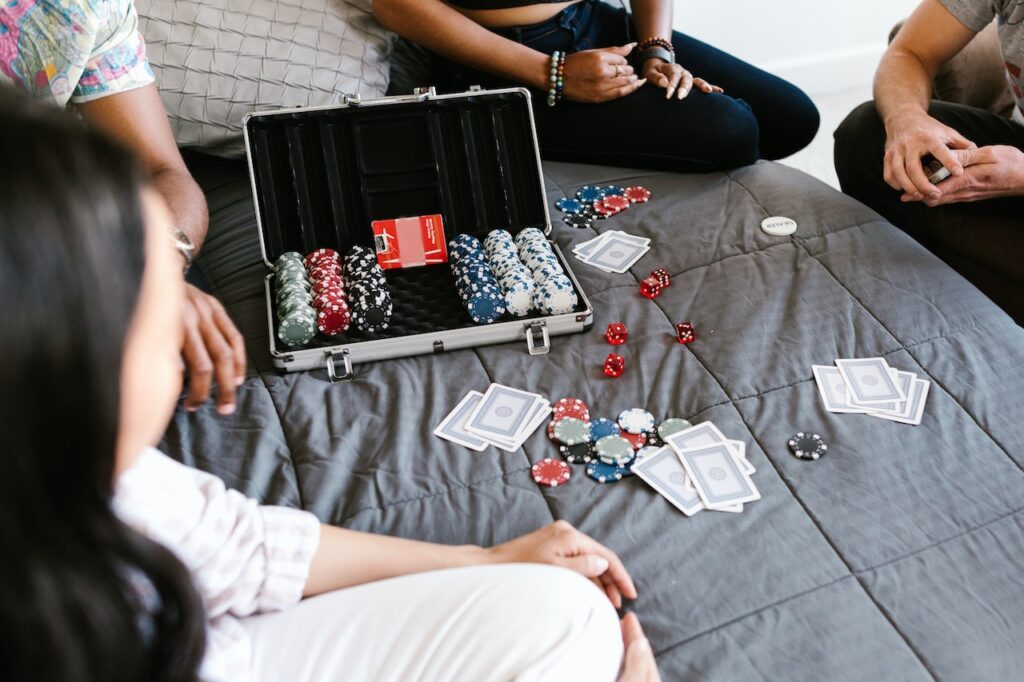


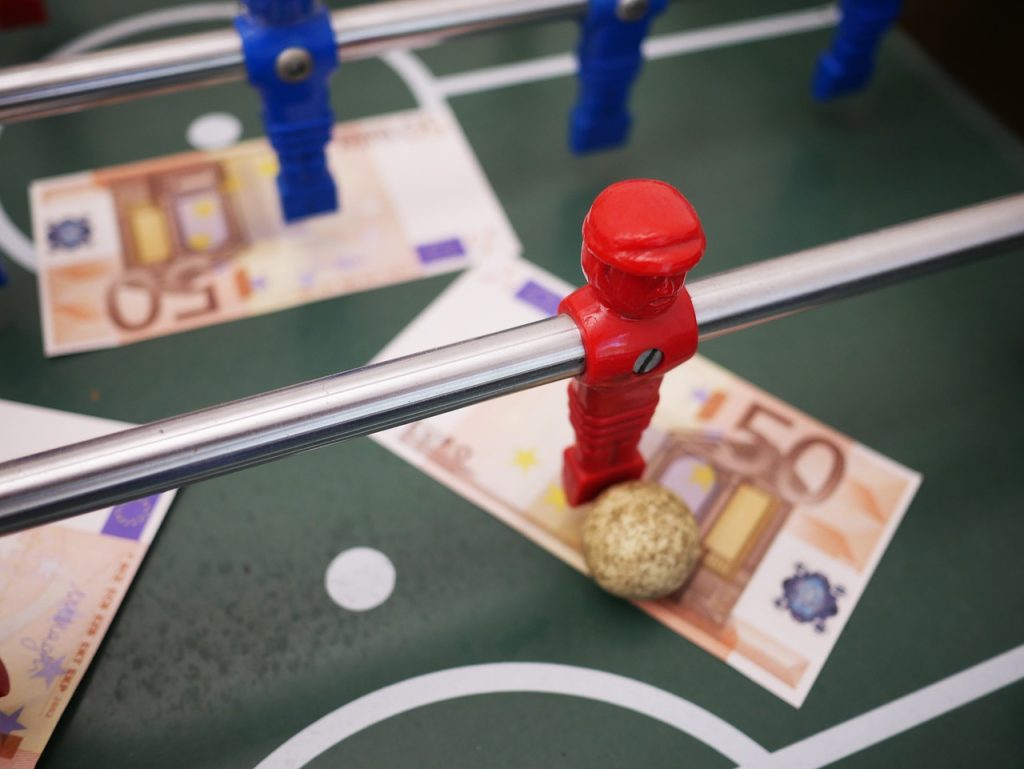
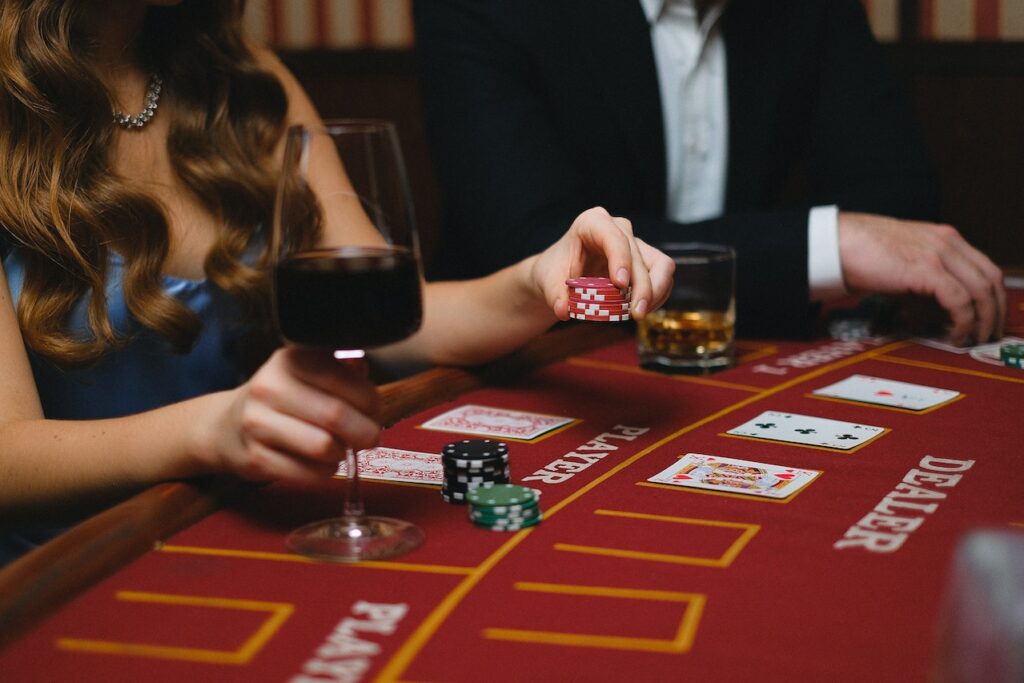
Comments